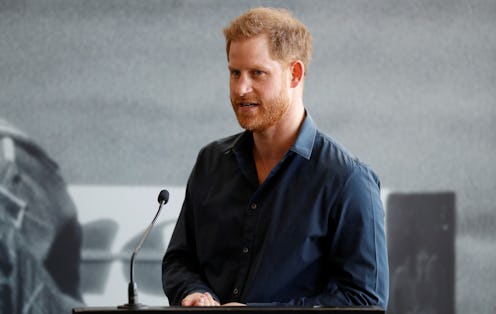Entertainment
Prince Harry Has Backed England Rugby's Review Into "Swing Low, Sweet Chariot"

Over the last few weeks Black Lives Matter campaigners and activists have highlighted how Britain still glosses over the racist reality of its history. Statues of slave traders are being pulled down and a petition has been created calling for history curriculums in schools to reflect Black history in the UK. Now Prince Harry has backed moves to review a rugby chant sung at England games. If you’ve watched an English rugby game before then it’s more than likely you’ll have heard “Swing Low, Sweet Chariot” sung.
However, this may not be the case for much longer. On June 18 the Rugby Football Union (RFU) announced that it was looking into the historical context of the song. The phrase "Carry them home,” a reference to the song, has already been removed from the RFU social media pages. In a statement the RFU said, “The ‘Swing Low, Sweet Chariot’ song has long been part of the culture of rugby and is sung by many who have no awareness of its origins or its sensitivities. We are reviewing its historical context and our role in educating fans to make informed decisions.”
Per a report in The Times, Prince Harry has lent his support to the review. A spokesperson for the royal said, “The Duke is supportive of the comments that the RFU made this week regarding the review and he will follow the lead of the RFU on the matter.”
As BBC reports, it’s believed that "Swing Low" was written in the mid-19th century by Wallace Willis, a Black slave. Some have said it’s about the difficulties of life as a slave in America. The earliest recording of the song being sung dates back to 1987 at a match at Twickenham, the home of England rugby. This is when Martin Offiah, also known as "Chariots" Offiah (despite the fact that, as the BBC reports, the correct pronunciation of his surname is "Off-ee-ah") played. He told the publication he welcomes a discussion about the song but doesn’t believe in a ban. He said, “if this review leads to the RFU putting a positive spin on this song, engaging with ethnic communities, looking at the rooms where decisions are made in the RFU and addressing those issues, that's what we actually want."